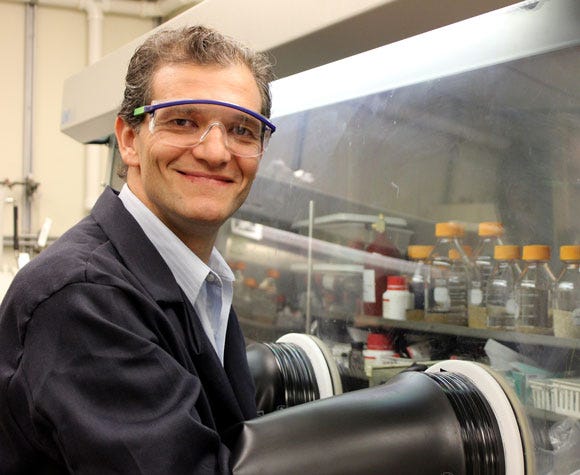Startup Aims to Turn Tree ‘Trash’ Into Industrial Treasure

Subscriber Benefit
As a subscriber you can listen to articles at work, in the car, or while you work out. Subscribe NowA Purdue University researcher says most Americans would be surprised to learn chemicals commonly used to flavor foods or add scents to perfumes and lotions originate in a gallon of crude petroleum. That means companies in the flavor and fragrance industries spend big money to get their hands on these petroleum byproducts, called high value chemicals (HVCs). However, West Lafayette-based startup Spero Energy has sniffed out a method to obtain those same chemicals from tree limbs tossed aside for trash pickup—and it just landed $1 million to perfect the process.
The U.S. Department of Energy (DOE) awarded Spero Energy the sizable grant—which is the largest dose of funding the company has received yet. The money will help the startup tweak and scale up a process it’s invented, called SPERLU (Selective Process for Efficient Removal of Lignin and Upgrading).
“If you think about one gallon of crude petroleum, we tend to think that’s just gasoline or diesel,” says Spero Energy Founder and President Dr. Mahdi Abu-Omar, also a Purdue University professor of chemistry and chemical engineering. “While that is true for the majority of it…about one-eighth of a gallon of crude petroleum ends up in chemical products that are used in everything from plastics to shampoos and personal care products.”
Two of those chemicals are dihydroeugenol (DHE) and propylsyringol (DMPP). The company says DHE is a common ingredient in perfumes, and DMPP is “the single most important” ingredient for adding smoky flavors to food. Rather than relying on petroleum to create these high-demand chemicals, Spero Energy’s b The startup even partnered with Lafayette to use its municipal wood waste to make DHE and DMPP.
“[DHE and DMPP] also can be transformed into vanilla, for example,” says Abu-Omar. “Vanilla is a very popular flavoring that has a growing market, and there’s increasing demand for vanilla from natural sources, rather than synthetic—meaning from molecules that are extracted from petroleum, for example.”
While Spero Energy is initially targeting the flavor and fragrance industries, Abu-Omar says SPERLU can also be used to create chemicals needed in the biofuel market.
“To access the sugars—the carbohydrates to make biofuels—you have to get rid of the lignin [from wood or plants],” says Abu-Omar. “Our process removes the lignin without damaging the sugars and the carbohydrates—they’re still preserved to be used for biofuels and other uses. So those sugars become accessible to then be fermented into ethanol and other alcohols that are biofuels.”
Spero Energy earned Phase 1 grants from the DOE, the National Science Foundation and Indiana-based Elevate Ventures. Company leaders say the recent $1 million grant will help the company perfect its process and connect with industry partners to validate the chemicals’ “purity and usefulness.”
“So far, we’re making this product on a 10 to 15 gram scale. We want to scale up our process, so we can make products on the kilogram scale,” says Chief Technology Officer Dr. Basudeb Saha. “It’s important that we have a robust scale up process, so we have products that have been validated by different customers. Then, at the end of Phase 2, we can go directly to the market to raise funds for commercial production.”
Spero Energy is working with an Indianapolis-based company that may use its method for obtaining flavoring chemicals. Although the startup can’t share details for privacy reasons, it’s also on the cusp of finalizing an agreement with an Indianapolis-based agricultural chemical company that wants to use one of Spero Energy’s lignin-based products for agricultural applications.
“We’re also working with a number of companies outside of the state,” says Abu-Omar, “and I think that’s also good for Indiana, because when it comes to biomass technology, Indiana has the opportunity to be one of the leaders in this growth area.”
Aiming to be on the market in about two years, Abu-Omar believes SPERLU could turn tree “trash” into industrial treasure.
